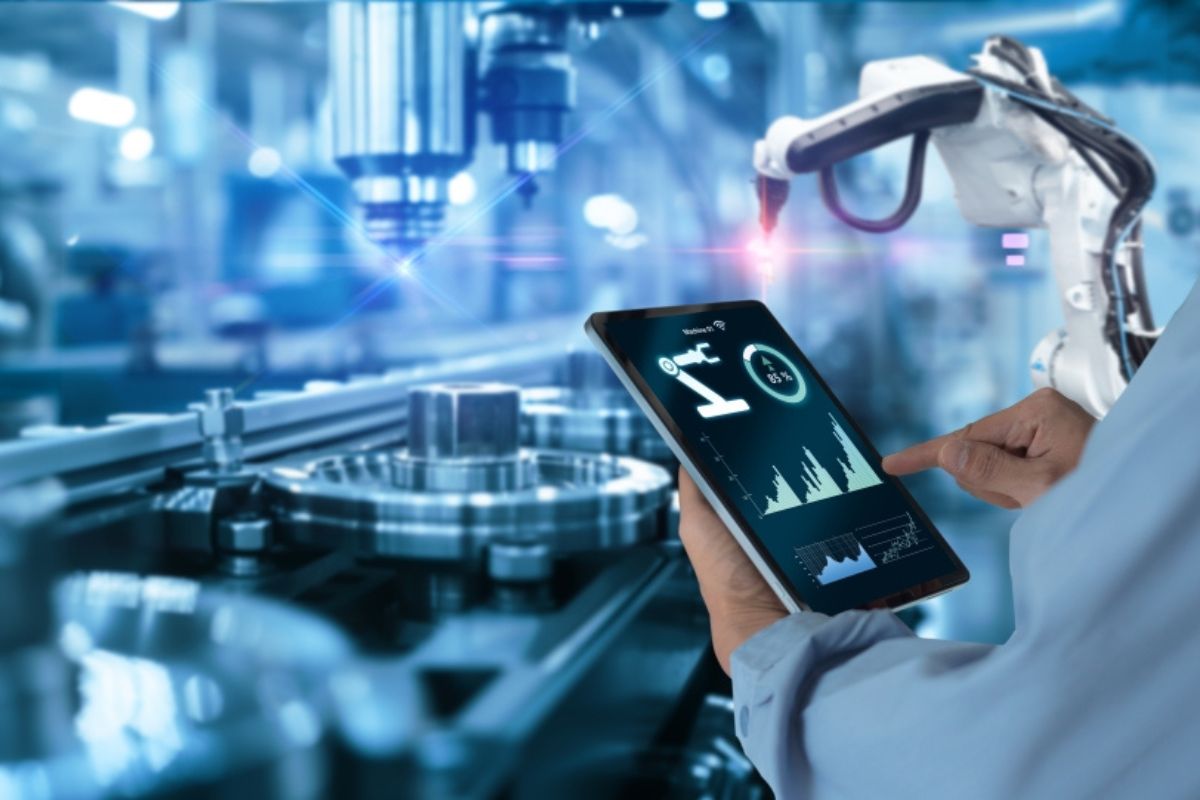Advanced technologies are transforming MedTech operations at Coyol Free Zone, positioning Costa Rica as a leader in smart manufacturing
September 30th, 2025. The Medical Devices and Smart Manufacturing industries are undergoing a profound transformation driven by the integration of new technologies, such as Artificial Intelligence (AI), robotics, and digitalization. These tools accelerate innovation, improve efficiency, and ensure competitiveness in a constantly evolving global market.
In this scenario, Coyol Free Zone has developed a specialized environment that enables the companies based in the Park to incorporate Industry 5.0 solutions into their operations, consolidating our position as a regional benchmark in technological innovation applied to world-class manufacturing.
Digitalization driving efficiency
Since its beginning, Coyol Free Zone has been strategically developed with automated management processes, next-generation connectivity, environmental monitoring, and redundant services that ensure operational continuity.
Currently, we incorporate platforms such as BIM, Procore, and OpenSpace, which enable digital project traceability, real-time monitoring, and early risk detection. These tools strengthen the quality and efficiency of construction processes, contributing to a safe, smart, and sustainable industrial environment.
Digitalization also impacts the employee experience. One example is Ride Coyol, a platform that facilitates the mobility of more than 18,000 users through direct and efficient routes. Likewise, the Park’s security relies on an intelligent AI-powered video surveillance system that anticipates and prevents incidents to protect both people and daily operations.
AI, robotics, and automation at the core of operations
Coyol Free Zone promotes the digital transformation of industrial processes by designing spaces for highly specialized companies. According to the Manufacturing Leadership Council, 96% of manufacturing companies plan to increase their investment in AI, and 28% already have active projects.
Additionally, Costa Rica leads Latin America in digital skills, according to the World Economic Forum, reinforcing the capacity of the country to sustain these transformations.
Within this environment, companies operating in Coyol Free Zone have advanced in implementing these technologies:
- Establishment Labs uses AI algorithms to analyze clinical data and optimize the design of medical implants.
- Hologic operates a pioneering cybersecurity center that protects the integrity of connected Medical Devices.
- Teradyne applies AI in automated testing systems for the semiconductor industry.
- Shockwave Medical invested US$40 million in the installation of a digitalized catheter manufacturing facility.
- Smith & Nephew, Terumo, Medtronic, and Bayer employ industrial robotics, automated processes, and digital quality controls to produce advanced devices.
Global trends shaping the future of MedTech
The Medical Devices sector is experiencing an accelerated transformation, driven by technologies that are redefining production and management processes. According to The Trends Shaping Medical Device Manufacturing in 2025 (MDDI Online), three global trends will have the greatest impact in the coming years, trends that are already being applied by companies established in Coyol Free Zone thanks to the integration of advanced technologies.
1. Artificial Intelligence and data analytics for strategic decisions
Artificial intelligence (AI)—especially generative AI—continues to gain prominence in the sector. Beyond the adoption of complex algorithms, Medical Device manufacturers are beginning to maximize the value of the data they already possess, using their Enterprise Resource Planning (ERP) and Manufacturing Execution Systems (MES) platforms to make decisions based on real data.
This trend accelerates the digital transformation of companies and fosters smarter operations backed by advanced analytics. At Coyol Free Zone, companies such as Establishment Labs already integrate AI into product design, a clear example of the local impact of this global trend.
2. Automation and robotics for greater operational efficiency
The accelerated adoption of automation and robotics technologies enables manufacturers to increase the use of their installed capacity without proportionally expanding their workforce.
This drives the development of collaborative robots, advanced vision systems, and online quality inspections, allowing multiple workstations to operate simultaneously with the support of semi-autonomous assistants. At Coyol Free Zone, companies such as Smith & Nephew and Terumo apply these technologies in their production lines, enhancing precision and optimizing installed capacity.
3. Full visibility in supply chain management
The digitalization of the supply chain is becoming essential for the sector. Medical Device manufacturers seek to gain control and manage their inventory across the entire distribution network.
To achieve this, companies are adopting enterprise and supply chain management systems that integrate critical real-time information, improving product traceability and optimizing operating costs.
At Coyol Free Zone, this vision is reflected in the implementation of monitoring and digital traceability platforms that enable companies to better plan their production and ensure the availability of Medical Devices for the most demanding markets.
With more than 80% of installed companies expanding their operations within the Park, the strength of the environment we provide and our ability to support the evolution of strategic industries are evident.
In our role as developers and administrators of Coyol Free Zone, we offer functional, safe, and adaptable conditions for every stage of the production cycle, allowing companies to continue adopting new technologies and developing solutions with global impact.

